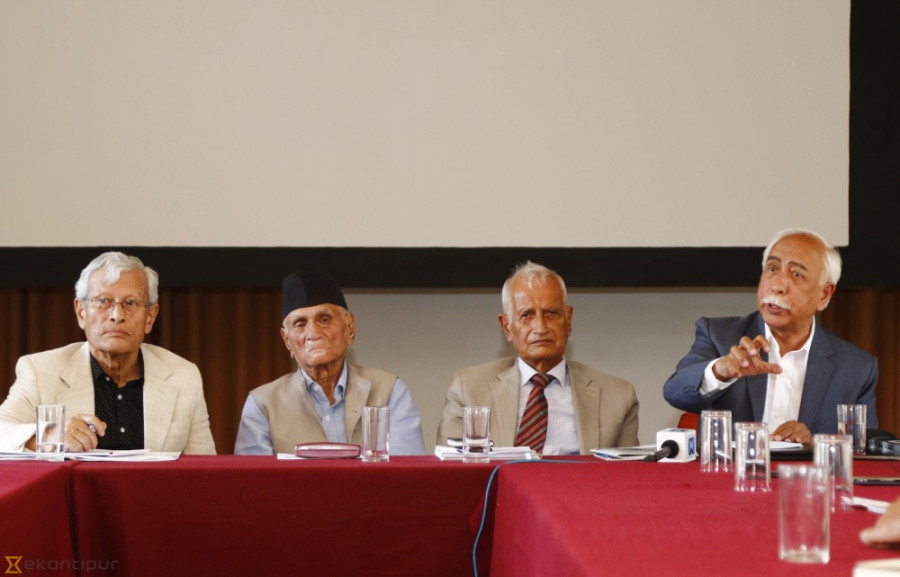National
Former vice-chancellors warn government to stop politicisation in universities
Retired vice-chancellors see the draft Higher Education Bill as an attempt to centralise power.
Binod Ghimire
Former vice-chancellors have criticised the government’s attempt to curtail the autonomy of universities saying it will only worsen the situation of the already politicised higher education sector in the country.
The government in May last year introduced a bill to amend the laws governing universities, authorising the prime minister, as the ex-officio chancellor of the varsities, to initiate a process to relieve the vice-chancellor, rector and registrar of their duties if one-fourth of senate members agree. Following the criticism from academicians, the government is hesitant to table the bill in Parliament. It is under consideration at the parliamentary Committee on Education and Health.
Now the government has drafted a Higher Education Bill, which envisions the formation of a Higher Education Council led by the prime minister with education minister as vice-chairman. The retired vice-chancellors see the new bill as an attempt by the executive to centralise power. They say it is a globally accepted principle that the varsities must get to function with full autonomy and without interference.
Kedar Bhakta Mathema, a former vice-chancellor at the Tribhuvan University, said the government seems to be taking a reverse course. “While there are discussions that even the colleges should be given autonomy, the government is taking one step after another to tighten its grip on the universities,” he told a press meet on Tuesday.
Mathema, who is a noted education expert, said the tendency of the incumbent government to draft laws without consulting with experts in the field is a reason why many laws have got into controversy. At the press meet, six former vice-chancellors of the oldest university unanimously said any act to control the academic institutions is unacceptable to them.
“We request the government to have intensive discussions with academicians and other concerned parties before formulating any policy or laws related to the education sector,” their joint statement read.
They also have asked the government to appoint vice-chancellors and top executive officials to the six universities immediately on merit basis. The varsities have been headless since the third week of August and the government is struggling to make the appointments in the absence of political consensus on the matter.
The Maoist faction of the Nepal Communist Party (NCP) has been demanding a respectable share while the professors’ association close to the Nepali Congress has threatened protests if they are ignored in the appointments. Nepali Congress President Sher Bahadur Deuba on Sunday met Prime Minister KP Sharma Oli to ensure that decisions on the appointments are made in consensus.
“I have been told that discussions are going on to find a consensus on the names,” a leader of the professors’ association close to the ruling party, who also aspires to be a vice-chancellor, told the Post on the condition of anonymity.
The government in September last year formed six committees led by Education Minister Giriraj Mani Pokharel and Usha Jha, a member of the National Planning Commission, to select the candidates. The committees had called for resumes claiming that the candidates would be picked based on merit, unlike in the past.
They had shortlisted 178 candidates after sifting through the resumes submitted by 250 professors and academicians. However, they haven’t yet submitted the names in the lack of consensus.
“Our higher education has been paralysed by politicisation. Appointing vice-chancellors on merit is the first step to control it,” said Maheshor Upadhyay, a former vice-chancellor at the Tribhuvan University. The vice-chancellors stand for a board of trustees to decide on appointments and actions for the officials if needed.




 18.12°C Kathmandu
18.12°C Kathmandu














